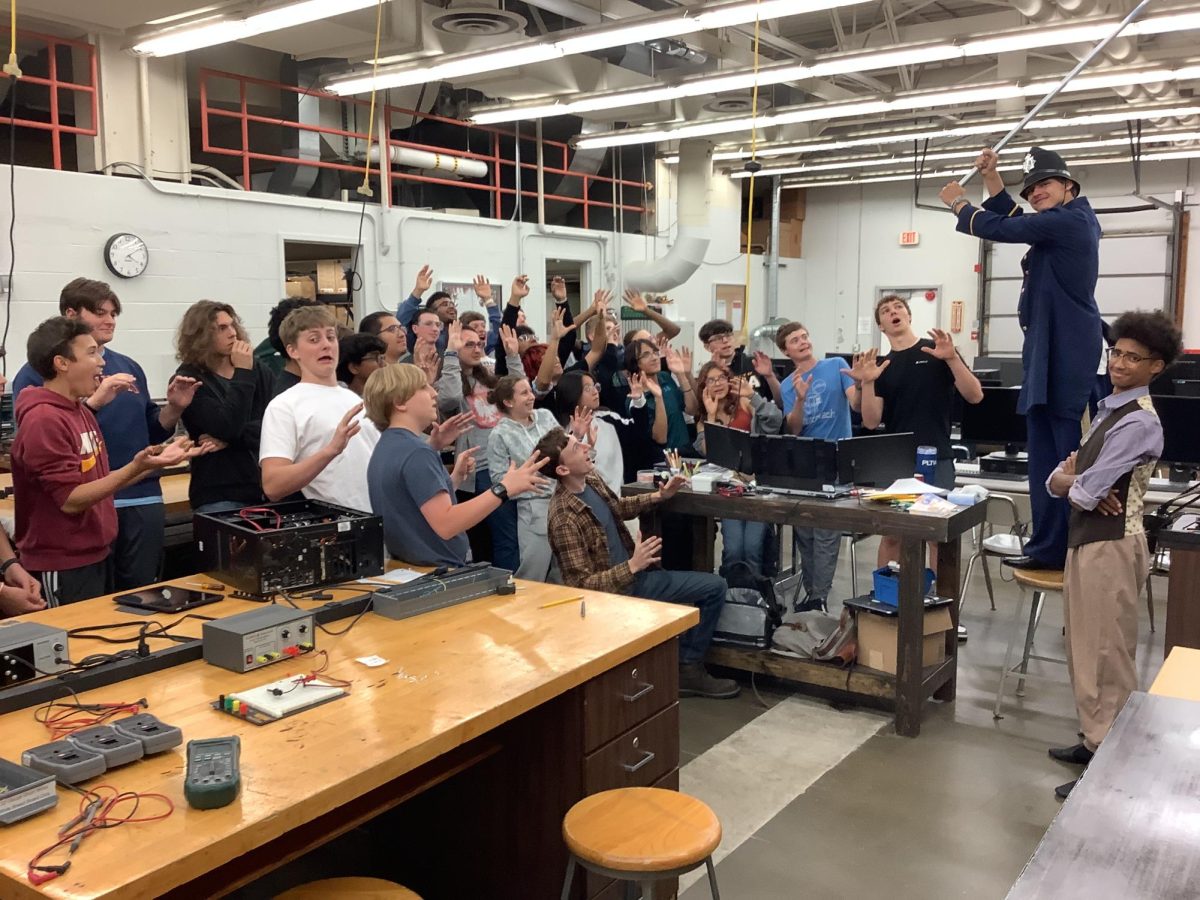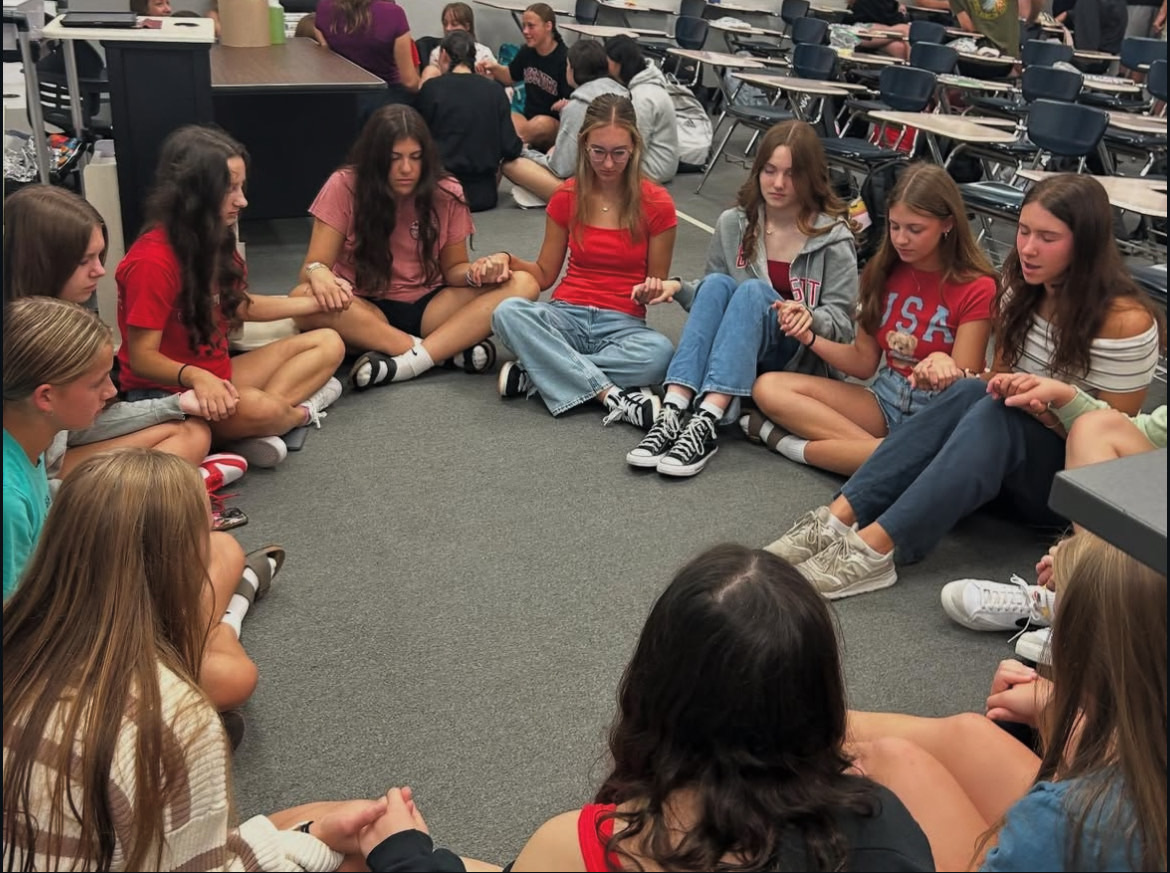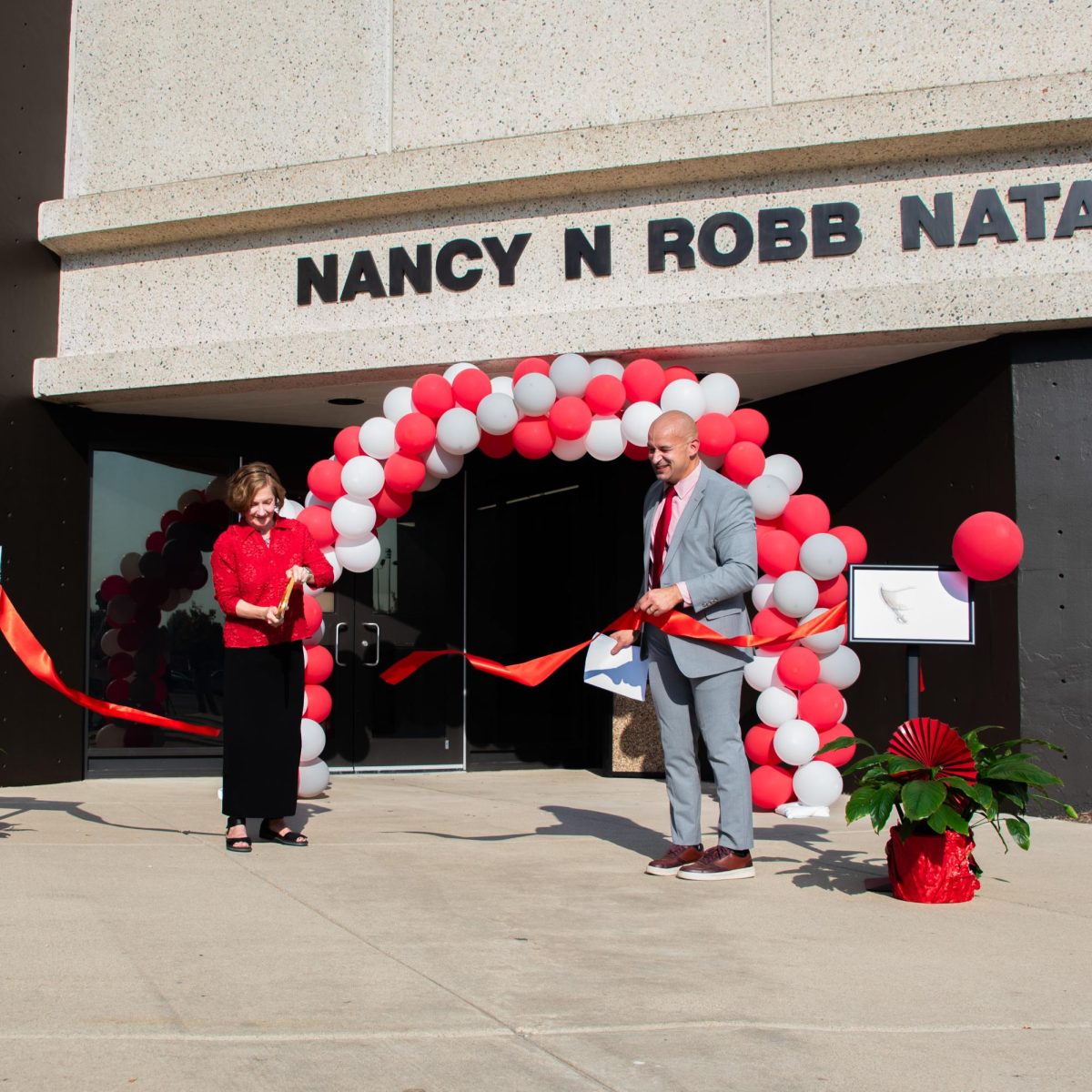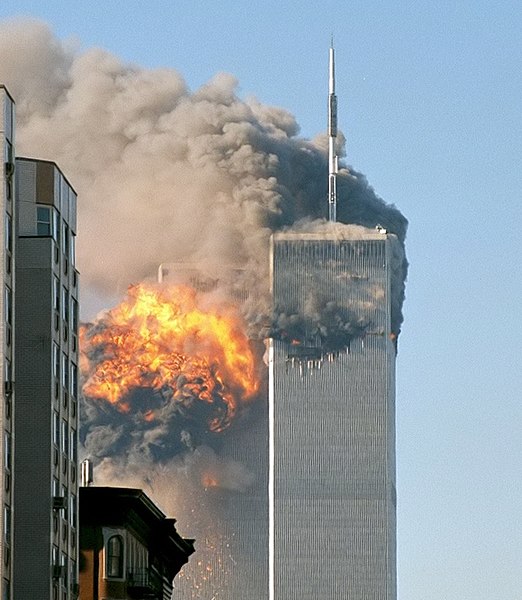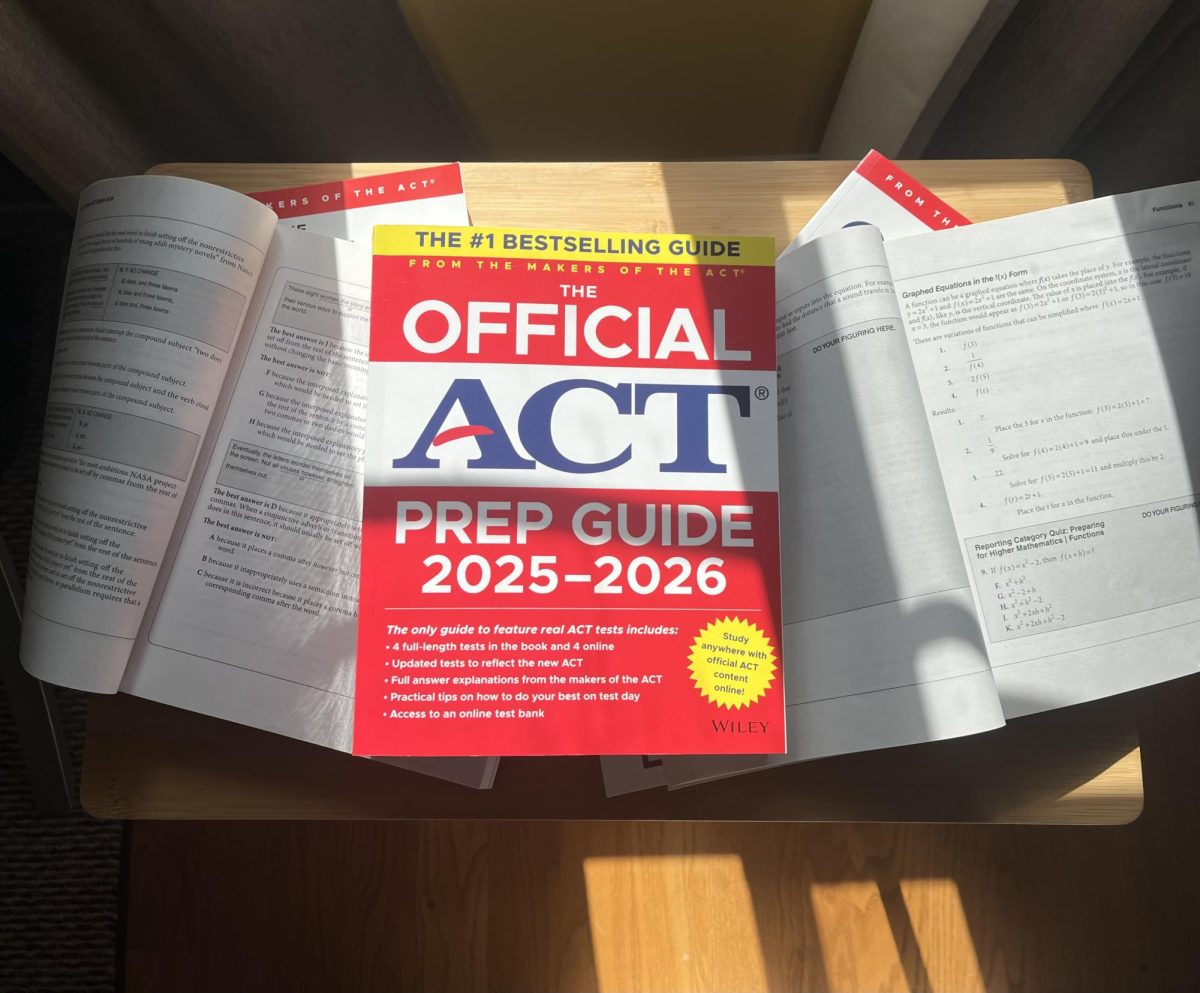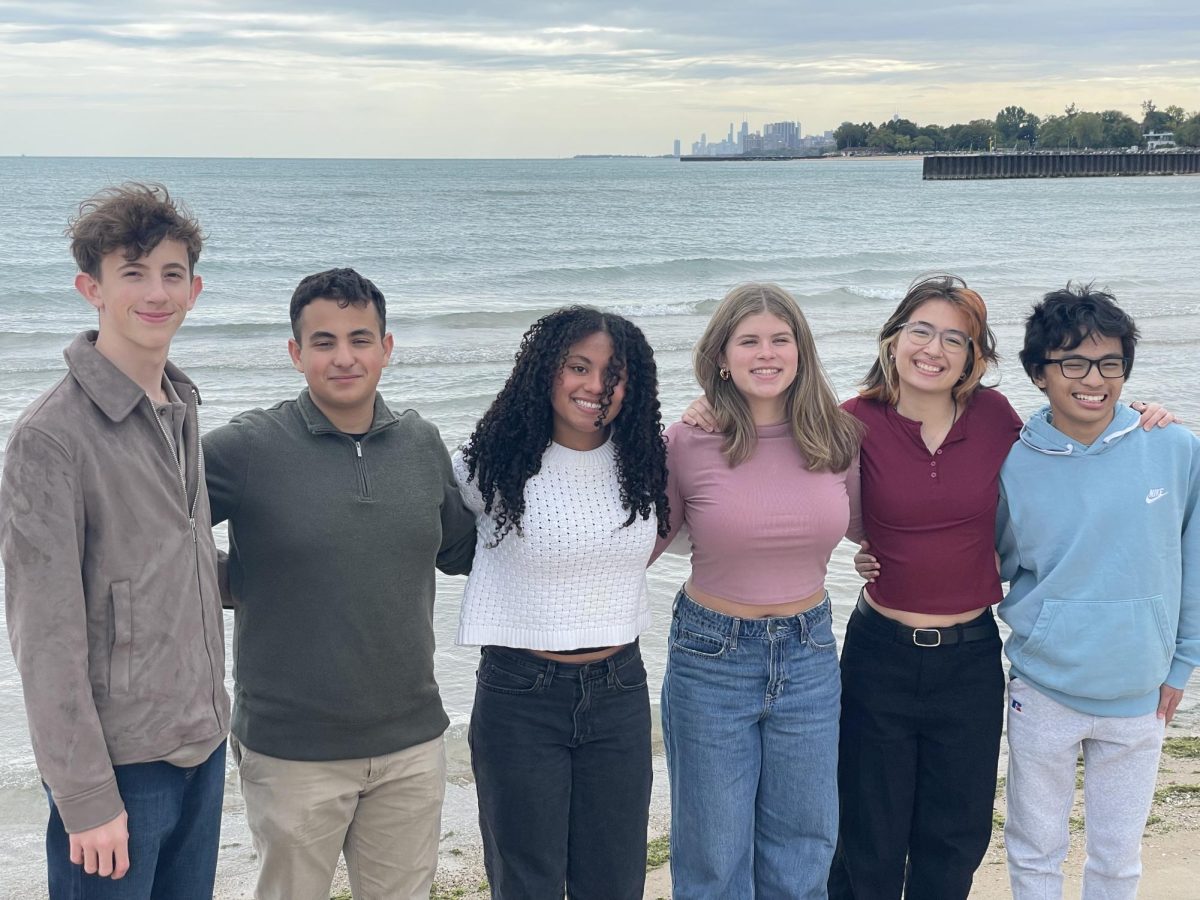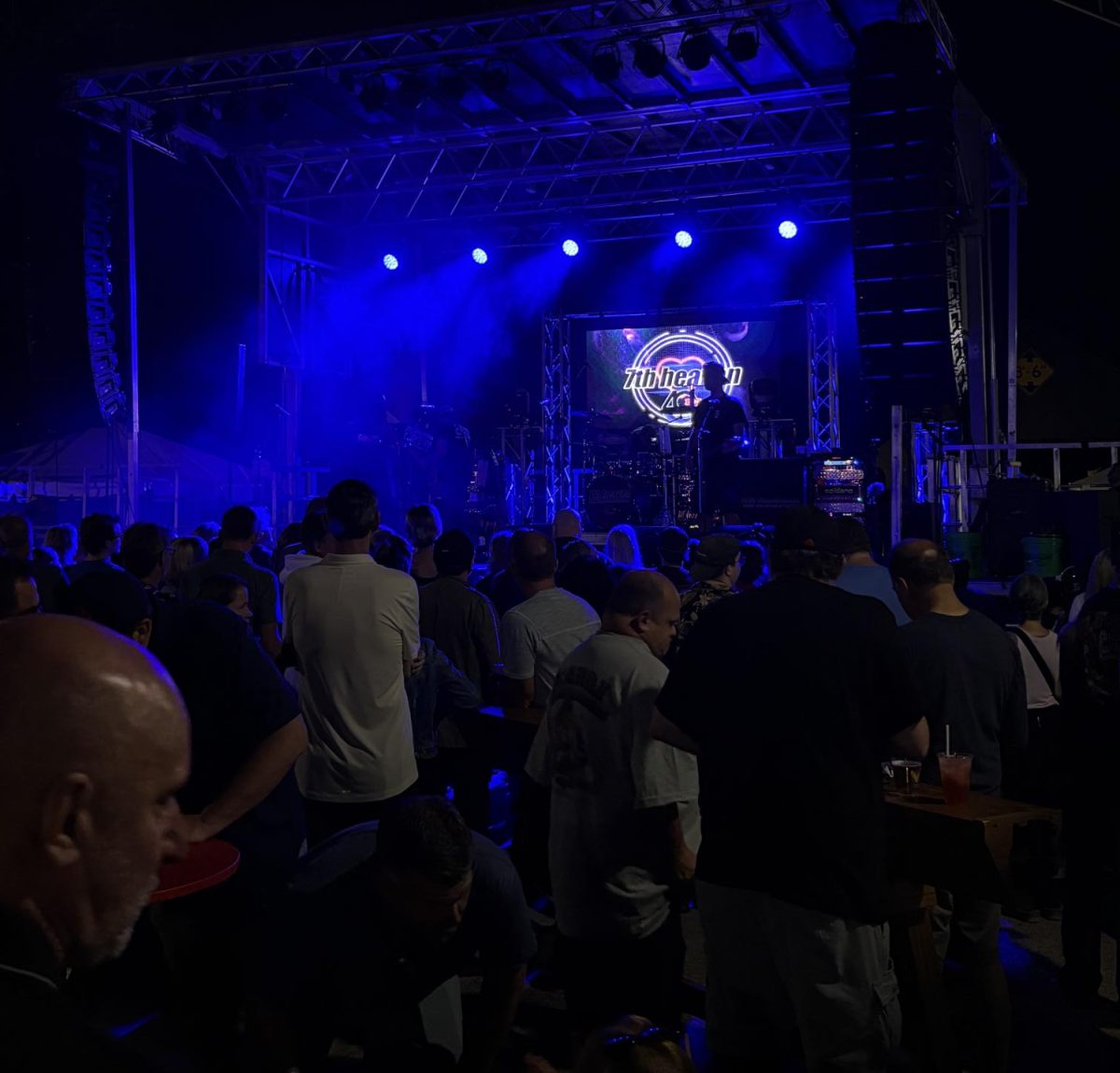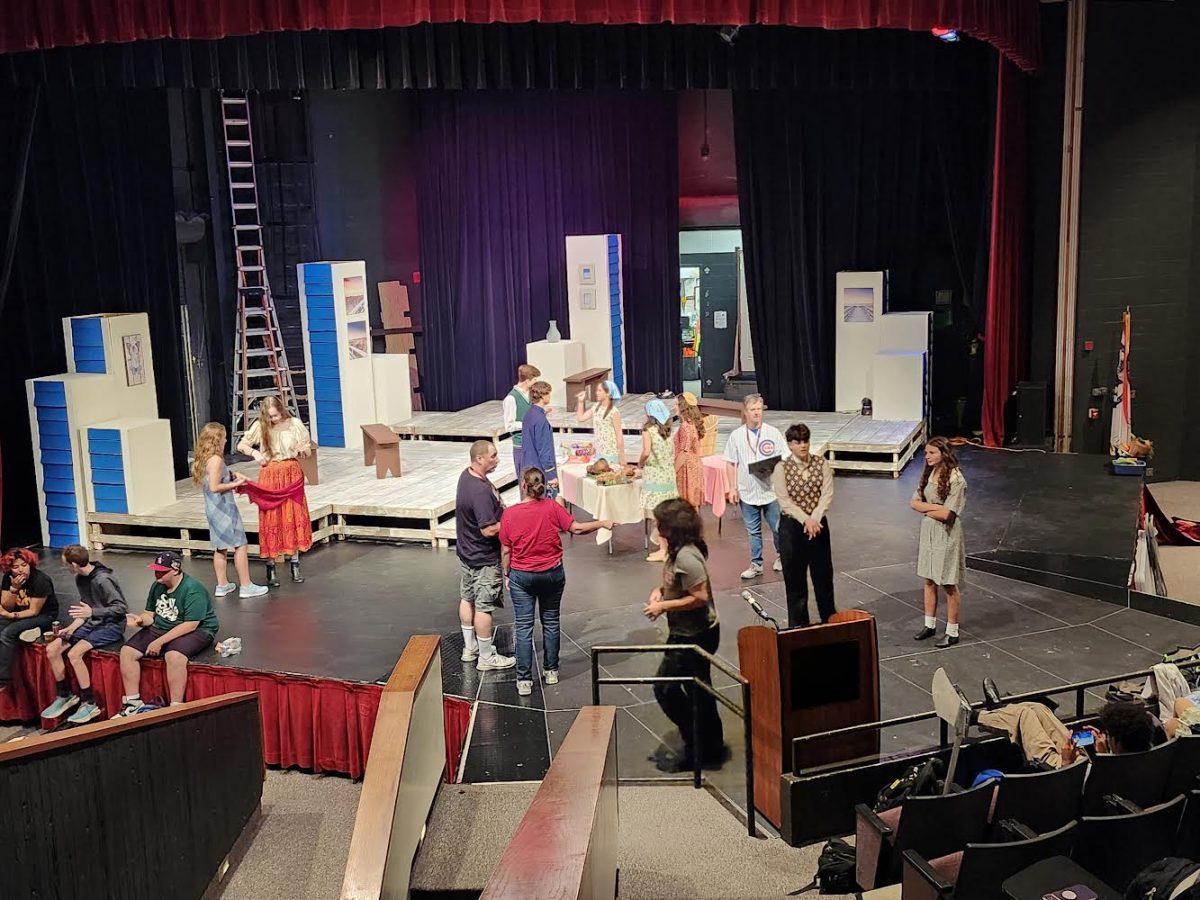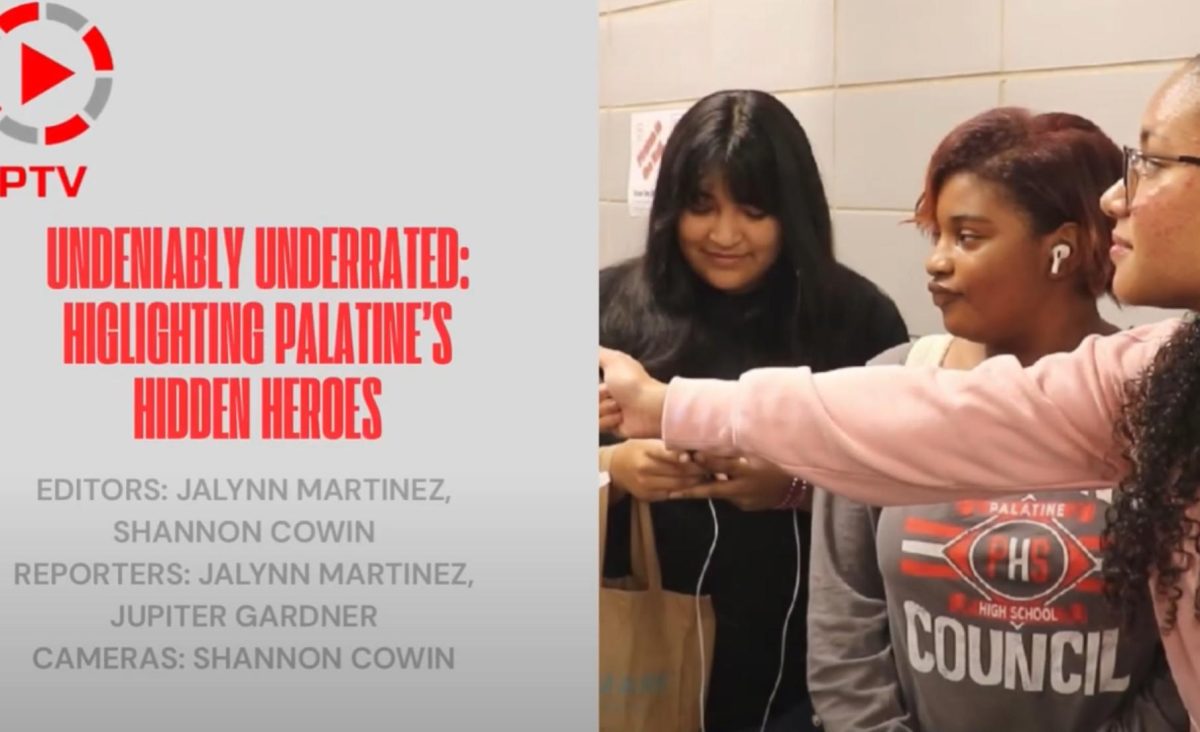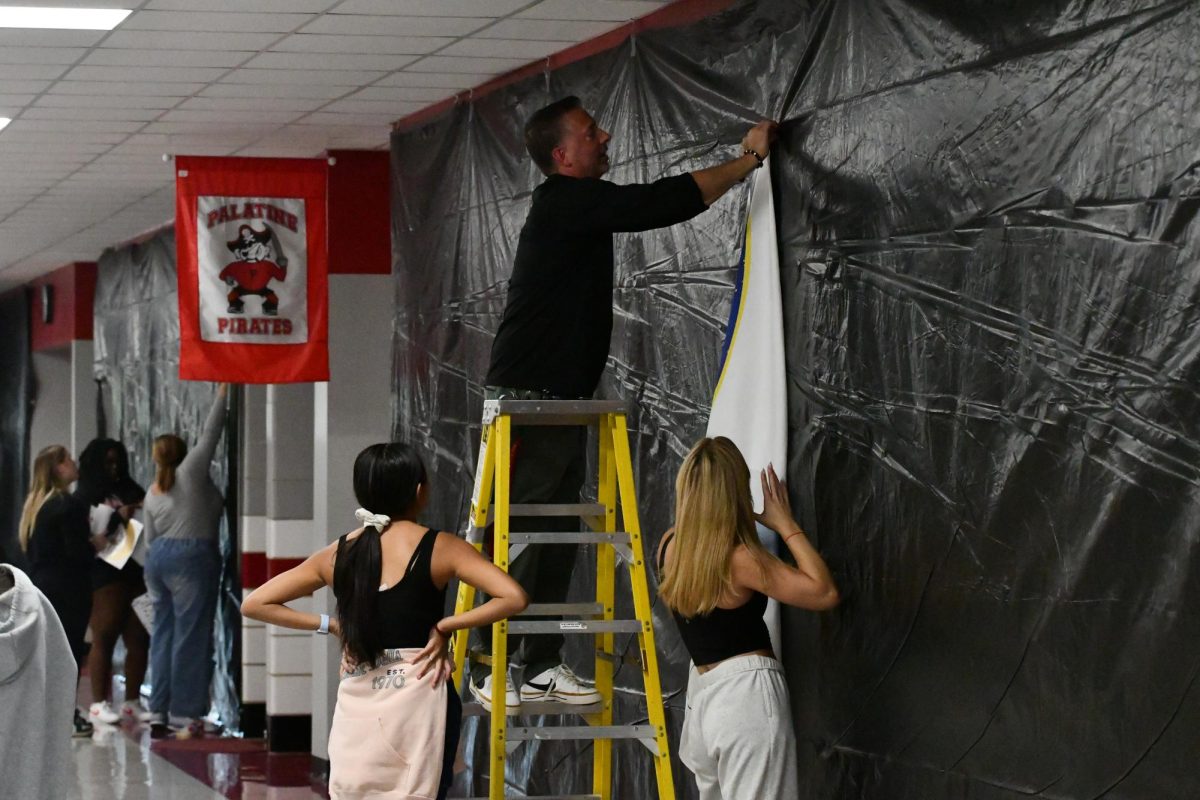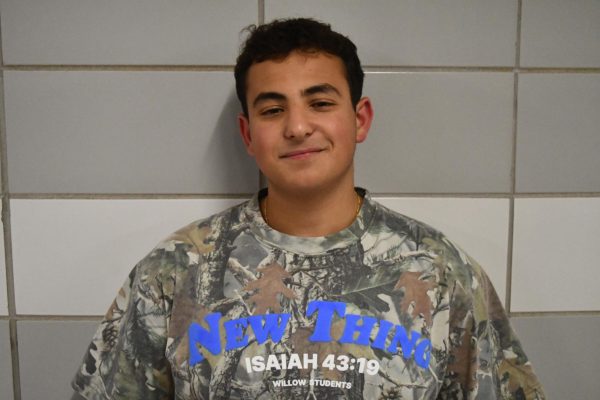Eighty years ago today, on May 8, 1945, headlines across the globe cried out in bold, triumphant letters: “WAR IN EUROPE IS OVER!” After nearly six years of bloodshed, the guns fell silent across the continent, and millions poured into the streets to celebrate the long-awaited defeat of Nazi Germany.
Cutlass, known as The Spotlight in the 1940s, reported on V-E Day celebrations, urging students to “bow their heads in silent prayer” while facing the east in order to pay respects to the fallen soldiers.
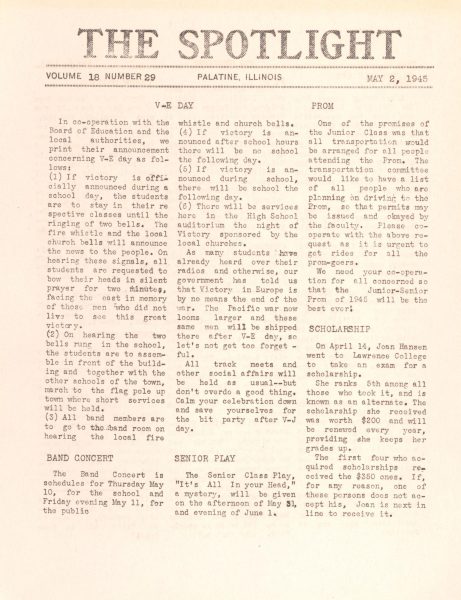
As the European front came to a close, World War II was still raging in the Pacific as the United States fought Japan. President Harry S. Truman addressed the nation, urging Americans not to forget that the war still blazed in the East.
“When the last Japanese division has surrendered unconditionally, then only will our fighting job be done,” Truman said.
As President Truman’s words echoed throughout the nation, many personal memories of the war’s end were shared within families. For Luke Miller, a history teacher at Palatine, the significance of V-E Day hit close to home.
“I remember my grandfather and my great-uncle once regaling the family with old stories from the ’40s,” Miller said. “My great-uncle Hollis Miller fought in WWII. He recalled Truman’s message as joyful but tempered, something along the lines of ‘Victory half-won’ or ‘Job half-done.'”
Across the country, the continuing conflict and threat posed by the Japanese Empire impacted many celebrations, as a joyful yet somber tone spread through America’s towns and cities. Palatine, too, felt the weight of this bittersweet moment.
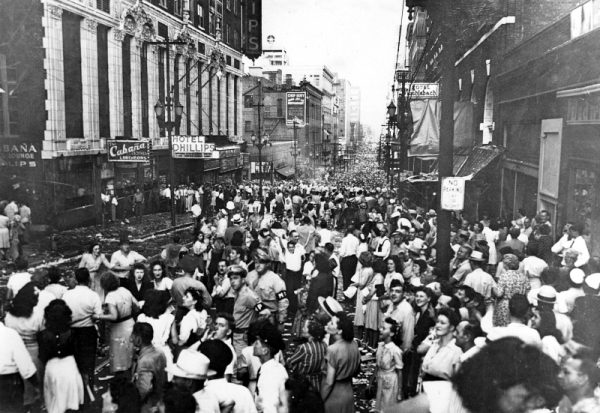
The local fire whistle and town church bells announced the end of the war to the town’s residents. Students gathered in front of the flagpole for a short service to honor the troops. Local churches used the school’s auditorium to hold remembrance services and a victory celebration.
“I think it’s difficult for anyone who hasn’t served in the armed forces to comprehend the level of sacrifice, regardless of the conflict,” Miller said. “But in terms of World War II, I think the scope of the conflict draws a lot of attention precisely because of the threat posed to both political, religious, and social systems.”
That’s why Miller believes studying history is crucial—not just memorizing names and dates, but actually comprehending and appreciating the past moments and events that have led to where the world is today.
“On a global scale, I think the lasting alliances of the past 80 years between Western democracies are phenomenally important—we’ve enjoyed relatively stable security and peace throughout that time, an increased standard of living, and been able to advance our economy through trade agreements,” Miller said. “All because of our willingness to come to the aid of European democratic nations.”
On a national scale, World War II continues to imbue lessons on today’s society. Despite different ethnicities, religions and creeds, Americans came together to overcome the second existential threat within the decade.
“Even the blots on American history continue to provide historians and teachers with lessons, such as Japanese internment,” Miller said. “We continue to learn from our past — be it great examples or mistakes that lead to our growth.”



